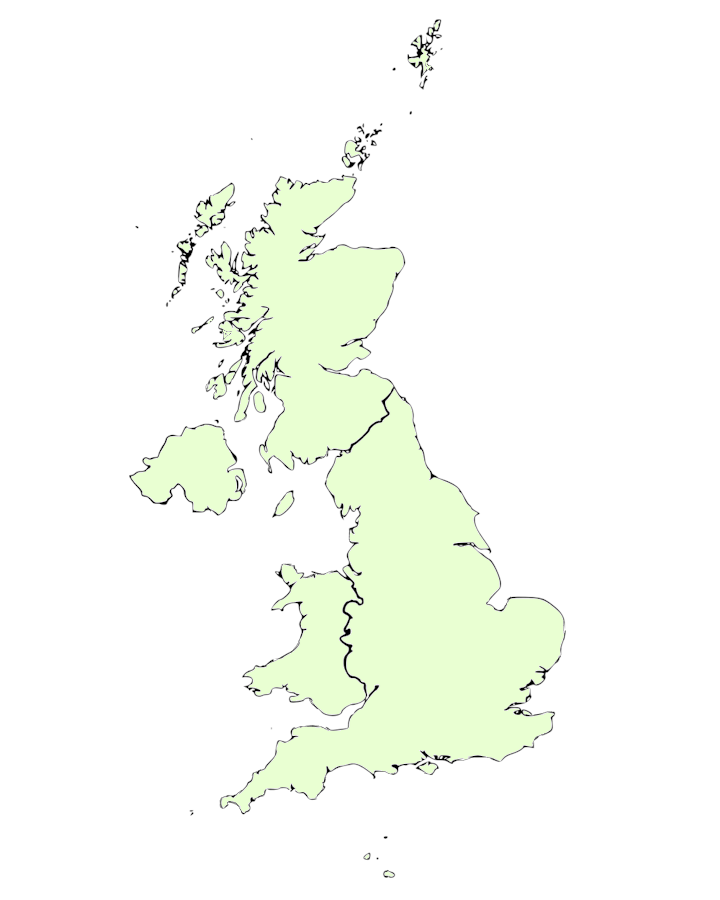Map of the Surname Cattle in United Kingdom and in the World
Exploring genealogy through surnames
Diving into the analysis of the geographical distribution of surnames is like opening a door to the past, unraveling the threads that connect families across generations. In this investigation, we will delve into the intricate network of connections that surround the surname Cattle, both in United Kingdom and in the rest of the world, unearthing clues about migrations, marriages and settlements that have forged its presence in different parts of the map.
Study of the dispersion of the historical surname Cattle in the beautiful country of United Kingdom


Origin of the Surname Cattle
The history behind the surname Cattle has been the subject of study and debate over the centuries. This surname has been linked to different territories and customs of United Kingdom, which has marked its trajectory and presence in different parts of the world.
Procedure
In order to carry out this research, statistics were collected from civil archives, surveys and other resources, both ancient and current. The data were structured and examined to determine the areas with the greatest presence of the Cattle surname. In addition, we sought to identify any notable trend in its dispersion throughout United Kingdom.
Results
General Distribution
The graph presents a global perspective of the dispersion of the surname Cattle in United Kingdom. The territories with a greater density are highlighted with particular tones, while the areas with a lower representation of the surname are marked differently.
Regions with High Concentration
The areas with the highest concentration of the surname Cattle cover multiple regions of United Kingdom. These areas have been recognized for their relevance in economic and cultural terms throughout history, which has contributed to the marked presence of the surname Cattle. The notable representation in these places may be linked to factors such as geographic mobility, economic development and other socioeconomic elements that influence demographic distribution.
Localities with Little Presence
On the other hand, the least common places to find the surname Cattle are generally those that are characterized by being further away, less densely populated or with less migratory influence. In these areas, geography, economic opportunities, or social factors may have limited the spread of this surname.
Historical Analysis
In past history, the distribution of the surname Cattle in United Kingdom has been affected by different significant events, such as internal and external population displacements, armed conflicts and changes in the political sphere. For example, at certain historical moments, a greater or lesser presence of the surname can be seen in certain areas. This situation may be associated with particular circumstances such as migrations, wars, or government decisions.
Demographic Factors
Population Movements
Population movements both within and outside the borders of United Kingdom have had a significant impact on the dispersal of the surname Cattle. The arrival of different migratory groups to various areas of United Kingdom has contributed to strengthening the presence of the surname in these places. On the other hand, emigration from United Kingdom to other countries has also influenced the internal distribution of the surname.
Urbanization
The transformation towards larger cities has driven a strong concentration of the Cattle surname in the urban areas of United Kingdom. The employment and training possibilities in these metropolises have turned out to be a magnet for families with the surname Cattle, thus increasing their presence in these urban centers.
Socioeconomic Changes
Population movements in United Kingdom have generated impacts on the distribution of the surname Cattle. This is because the development of certain economic sectors has motivated the migration of people to areas where said sectors have greater relevance, thus influencing the geographical dispersion of the surname in question.
Distribution of the Surname Cattle in the World
Global Expansion of the Surname Cattle
The legacy of the surname Cattle transcends borders, leaving its mark not only on United Kingdom, but in various corners of the planet. Migration and diaspora have been the main drivers of this dispersion, generating a network of Cattle families in different latitudes.
Main Countries of Presence
The surname Cattle is recognized in various nations around the world. These countries have witnessed a constant migratory flow from United Kingdom, which has contributed to the spread and roots of the surname in their borders. The motivations behind this migration can be varied, from economic opportunities to political or academic reasons, but they have undoubtedly been fundamental in the global expansion of this family.
 England
England Australia
Australia United States
United States Canada
Canada New Zealand
New Zealand Wales
Wales Scotland
Scotland Zimbabwe
Zimbabwe Nothern Ireland
Nothern Ireland France
France Spain
Spain South Africa
South Africa United Arab Emirates
United Arab Emirates Belgium
Belgium China
China Germany
Germany Egypt
Egypt Greece
Greece Haiti
Haiti Ireland
Ireland Liberia
Liberia Philippines
Philippines Thailand
Thailand Uruguay
Uruguay
Influence of Family Origin on National Identity
International migration has had a significant impact on the cultural and social diversity of United Kingdom. Throughout history, various events have caused families with the surname Cattle to move to different countries in search of a promising future. This phenomenon has contributed to enriching the national identity of United Kingdom, fusing traditions and customs from different regions of the world.
Global Conclusion
The surname Cattle has demonstrated a notorious capacity for adaptation and dispersion throughout the world. Its presence on various continents reflects not only the migratory history of United Kingdom, but also the integration and contribution of its carriers in different global societies. The analysis of its distribution provides an enriching story about how global dynamics of migration and settlement have influenced the identity and presence of this surname on a global level.
In summary, the investigation of the distribution of the surname Cattle in United Kingdom and on a global scale reveals fascinating patterns and provides deep insight into the history and demographic evolution of both the country and the global diaspora.



